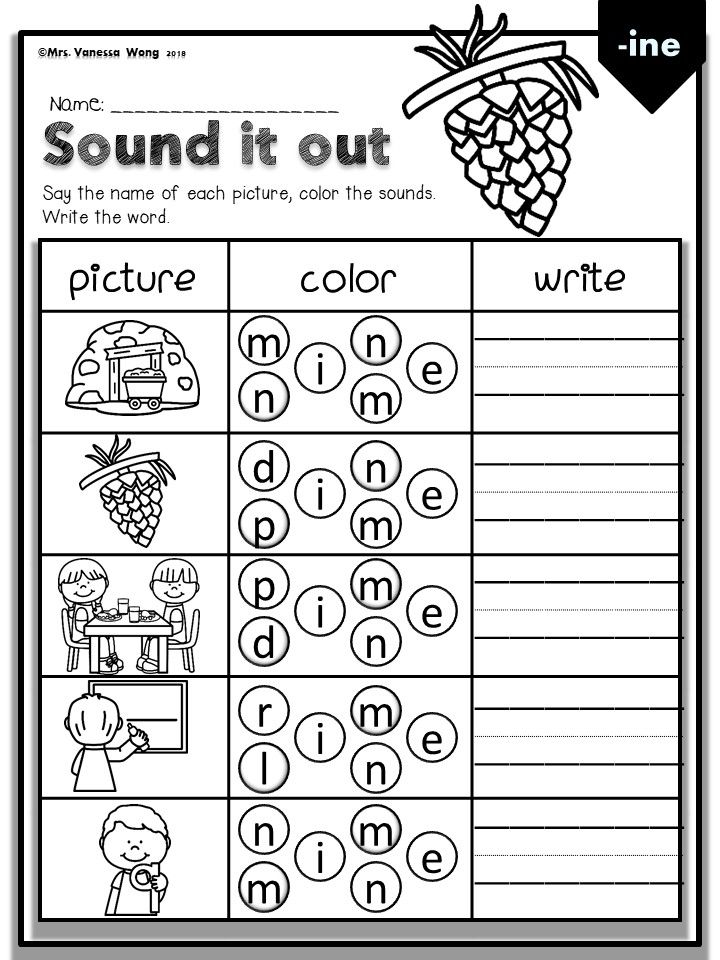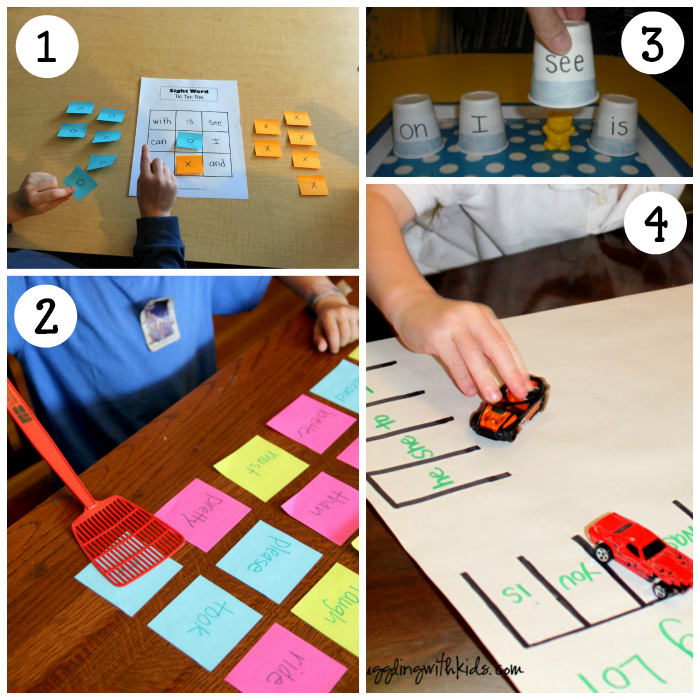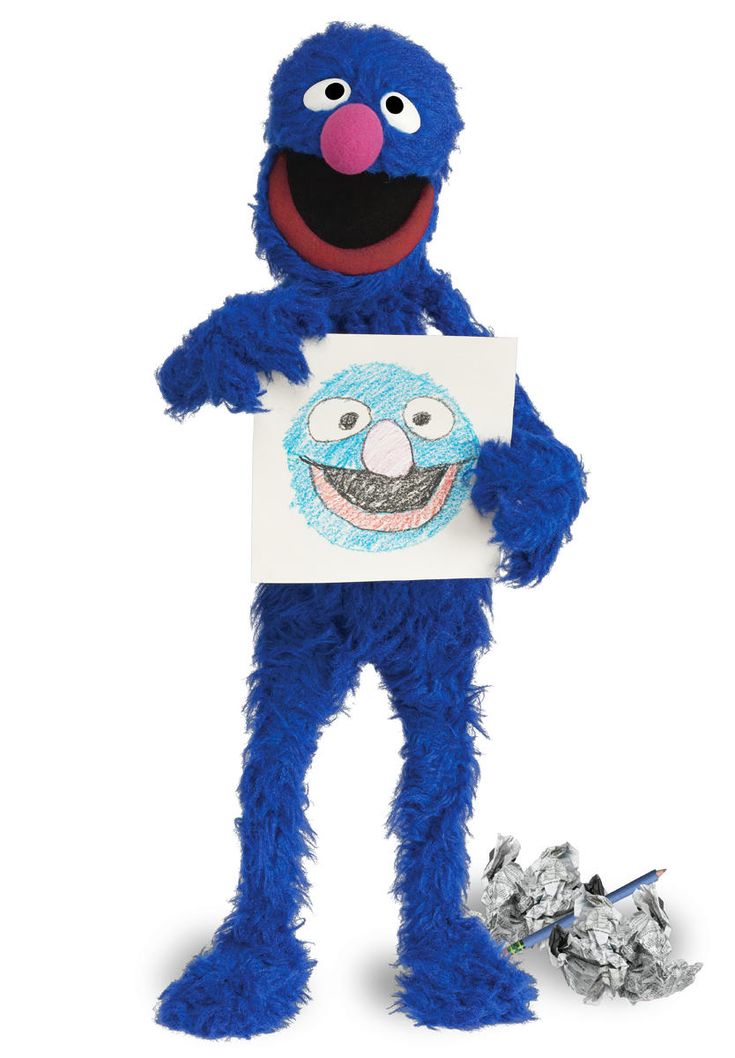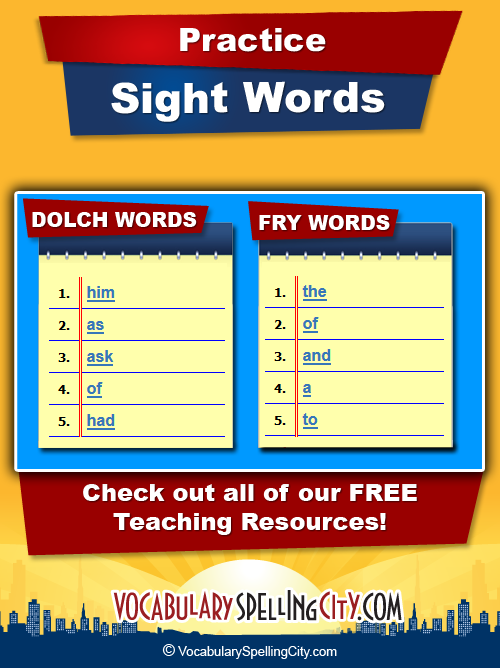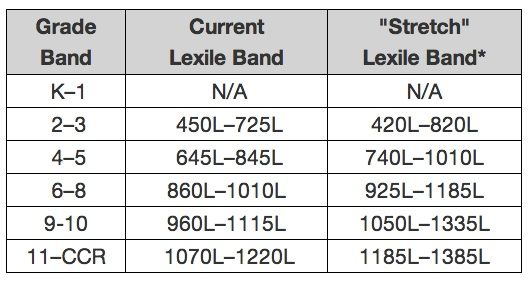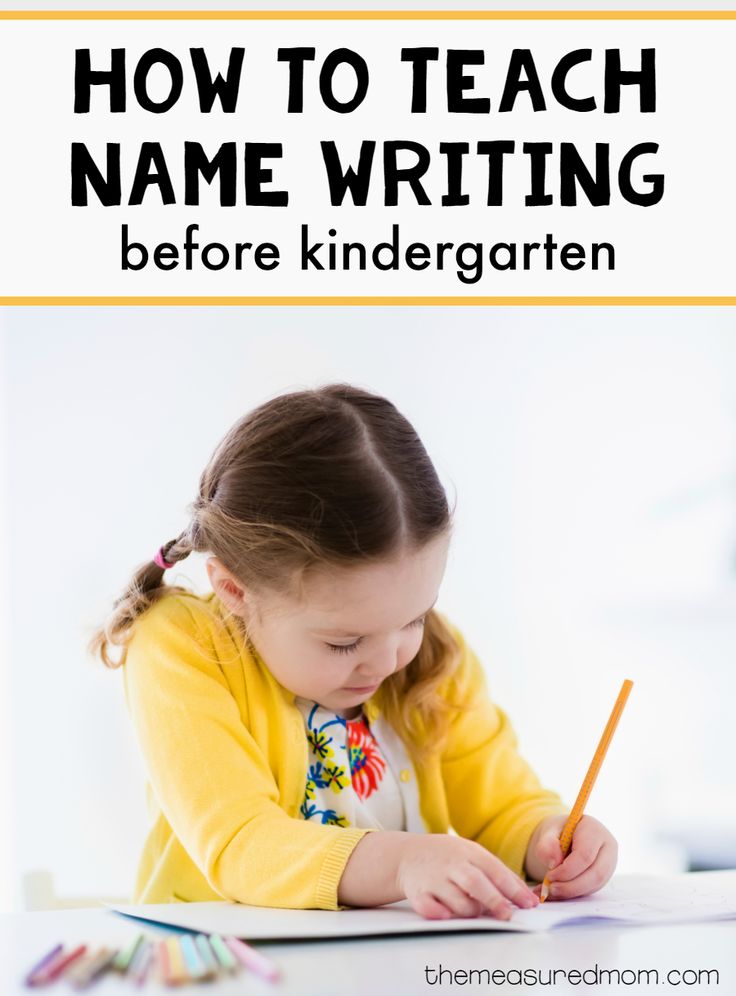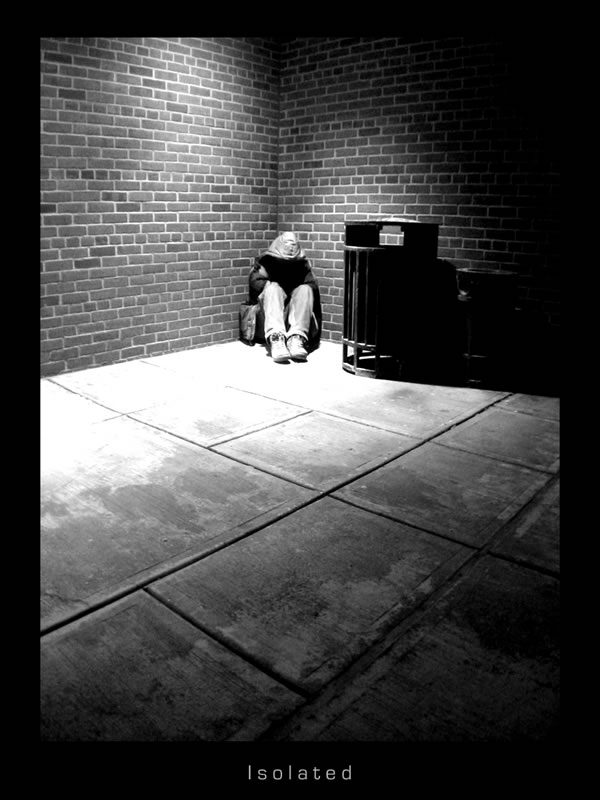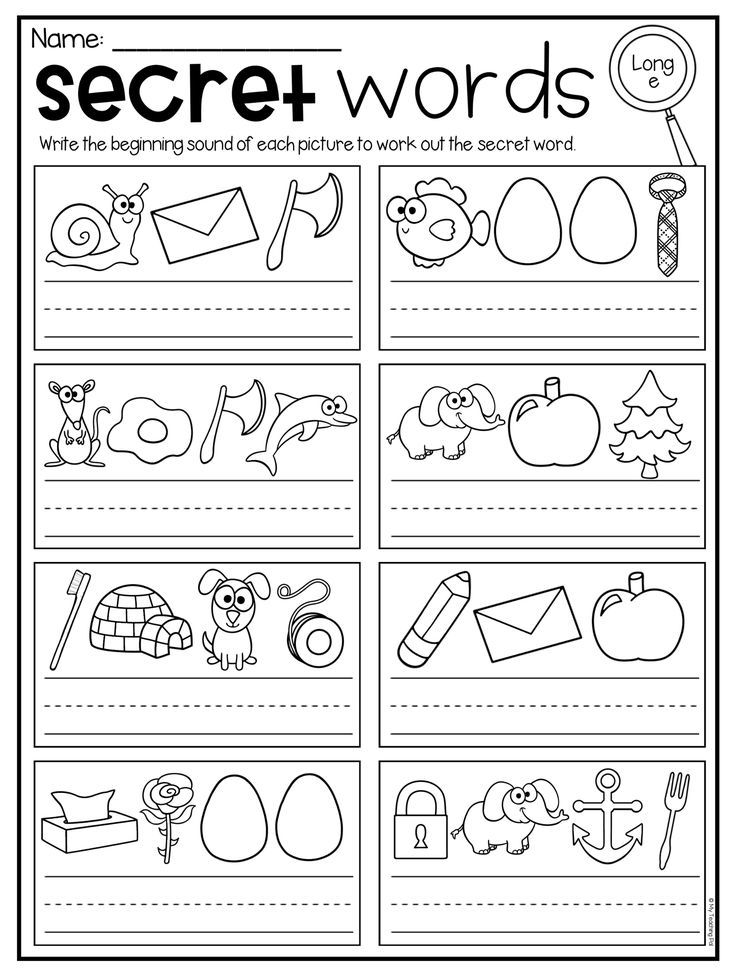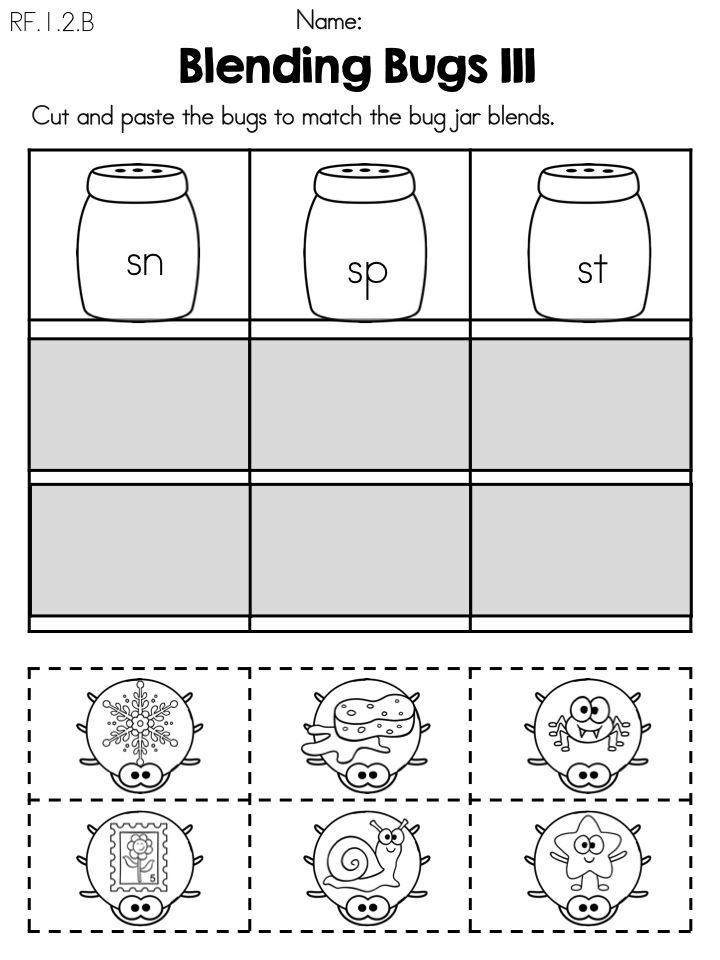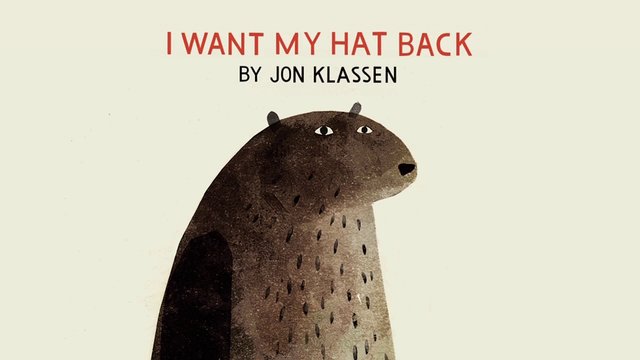Sounding out words for kindergarten
Helping Kids Sound out Words
I often receive emails asking how to help kids learn to sound out words. Many times, it’s because kids struggle to blend together the sounds in the word. For example, they may sound out the individual sounds in a word, like /l/ – /o/ – /g/ and then say something like, bat. Ugh. And this can be very frustrating for the adult and the child.
What can be done to help kids learn how to sound out words? Before we decide to beat our head against a wall, let’s explore some ideas together!
Before I get too far, I want to share just three warnings, if you please.
1. First and foremost, you want to make sure your child is developmentally ready to sound out words. This is key. If kids aren’t developmentally ready, sounding out words will be nothing but frustrating for your child and for you. I have a post called How You Know Your Child is Ready to Read and The Measured Mom also has a great list of ways to know when your child is even ready to sound out words.
2. Secondly, sounding out words isn’t the end-all-be-all for figuring out words. As kids progress in their word knowledge, we want them to use other strategies. Also, some words are not so easy to sound out and we’ll address those in a minute. But for the purpose of this article, we’re going to zone in on sounding out words.
3. Thirdly, sometimes you can try every trick in the book and your child still struggles to sound out words. Take a deep breath. Keep modeling. Keep playing with sounds. Keep teaching with a multi-sensory approach. Some children really struggle with sounding out words. Be patient and don’t compare your child to another child.
Helping Kids Sound Out Words
When your child/student struggles to sound out words, here are some tips to try. Remember to keep in your mind my three warnings mentioned above. If you haven’t read them, go back and do it!
1. Play with sounds in words.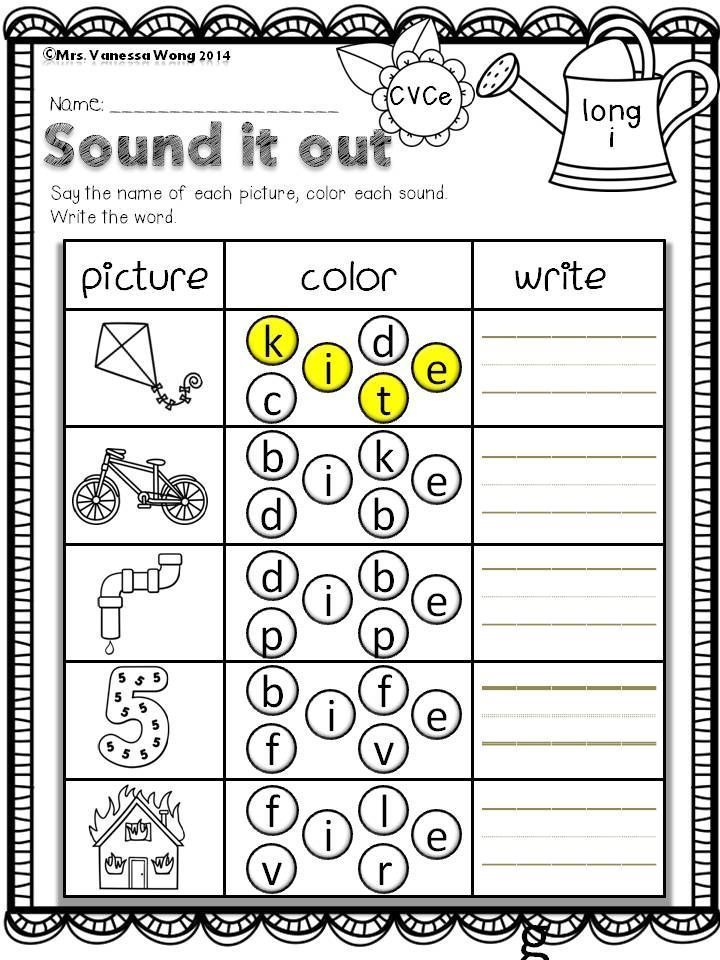 Even though kids may know their letter sounds, seeing the letters in print and attempting to make and blend the sounds all at the same time blows their mind. It can help to take a step back and remove the actual letters and just play with sounds, specifically blending sounds.
Even though kids may know their letter sounds, seeing the letters in print and attempting to make and blend the sounds all at the same time blows their mind. It can help to take a step back and remove the actual letters and just play with sounds, specifically blending sounds.
In my 7-day reading series, 3 Important Skills Needed for Reading, I address specifically how to do this by playing with rhyming words, playing with syllables, and playing with phonemes {the individual sounds in words.} For our purposes, phonemic blending and phonemic segmenting will be the most helpful for readers who are struggling to sound out words.
2. Get kids writing and spelling. As I mention in my post on invented spelling and in Teaching Kids to Spell, allowing kids to “sound out” their spellings can actually increase their awareness of sounds words.
For example, if your child wants to write the word hat, help her listen for each sound in the word by stretching the word out.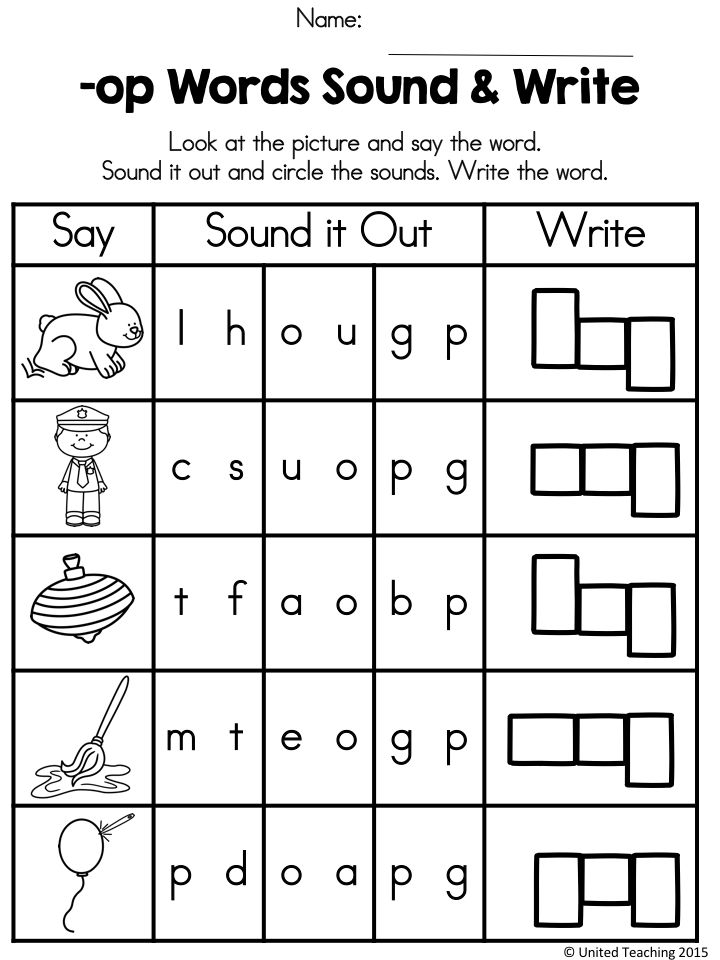 {This is called phonemic segmentation.} Then, after the word has been spelled, ask your child to read the word by blending the sounds back together again {phonemic blending.}
{This is called phonemic segmentation.} Then, after the word has been spelled, ask your child to read the word by blending the sounds back together again {phonemic blending.}
“I love you,” spelled independently by my 4 year old.
So often parents feel that kids shouldn’t spell words until they can spell the word correctly {as taught in some curricula}, but allowing kids to spell by sound can boost kids’ awareness of sounds in words which, in turn, can actually help them become better readers! {You can also read more about this in our 10 week Preschool and Kindergarten Writing Series.}
3. Start with sounds that can be prolonged. Letters don’t all make the same kinds of sounds. In other words, not all letter sounds were created equal {read more about letter sounds here}. Some letters are harder to blend than others. For example, trying stretching out the word pat (p–a–t). Now try stretching out mat (m–a–t). Can you hear how it could be easier to blend together mat than pat?
This is because letter sounds from letters like m, f, h, r, n, s, z and vowels can be stretched or prolonged, making it easier to blend them together.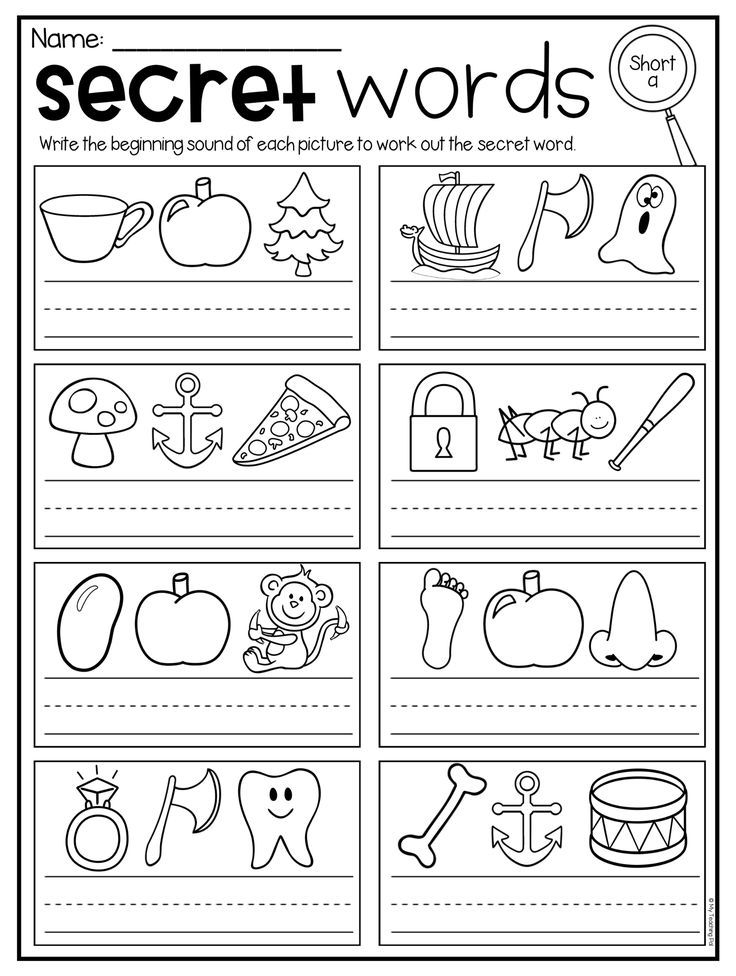 In other words, there’s no break of sound in between them. On the other hand, the letter sounds of c, d, t, and p do not continue their sounds. Try a few sounding out exercises with your child using real and/or silly words with these prolonged sounds like Sam, fan, zom, or nis. Say them slowly at first, then each time you sound them out, say the sounds closer and closer together.
In other words, there’s no break of sound in between them. On the other hand, the letter sounds of c, d, t, and p do not continue their sounds. Try a few sounding out exercises with your child using real and/or silly words with these prolonged sounds like Sam, fan, zom, or nis. Say them slowly at first, then each time you sound them out, say the sounds closer and closer together.
4. Use word families. Blending together two sounds can be much easier for some young readers than trying to blend together three sounds. We typically teach sounding out as three separate sounds {t-o-p}, but many readers will find blending together easier if we teach it like t-op, as explained in my word family post.
One of my favorite activities for young readers is to focus on ONE word family, such as -at. Help kids see how adding different sounds to the beginning of -at can make new words by letting them manipulate the letters.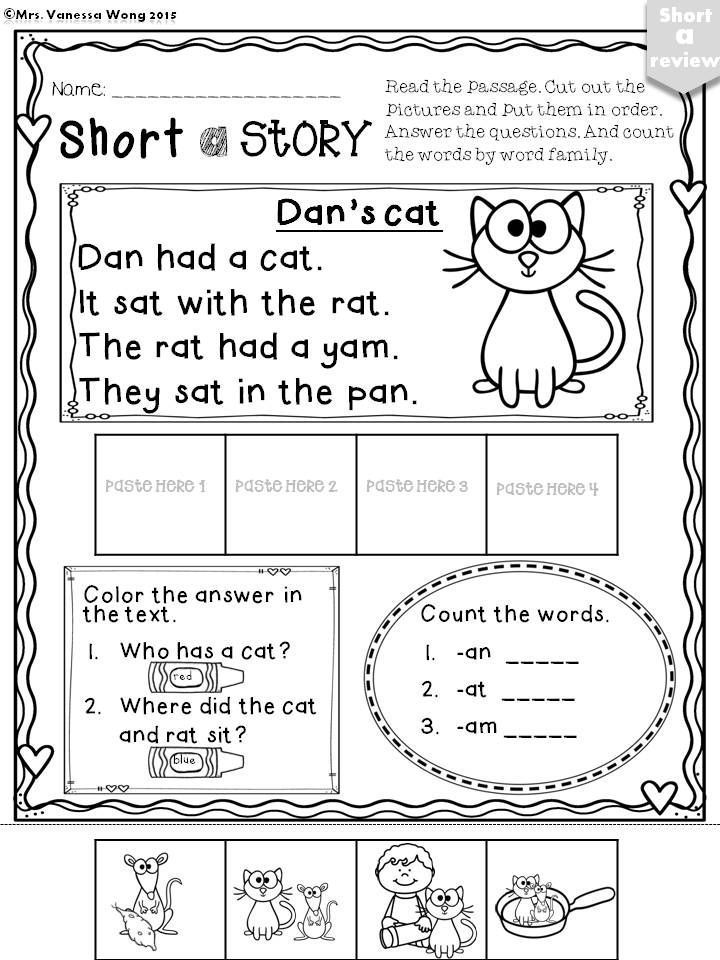
To see a few ideas, check out our –at post from Reading the Alphabet . You can also find more hands-on manipulatives for word families with our Flip-a-Word activity and our Dr. Seuss word family hats.
5. Not all words can or should be “sounded out.” I am referring mostly to sight words. And while I do believe that MOST sight words DO follow phonics “rules” and that learners can sound out sight words, learners may not be developmentally ready for all the “rules” that are needed to sound out some of the basic sight words.
For example, the word away is a sight word taught early to young readers because it appears frequently in the books they read. Away follows the schwa rule for unaccented syllables and the -ay long a pattern. Are Kindergartners ready to learn all the rules to help them sound out away? Probably not.
Instead of trying to cram a bunch of rules into their brains {and most of our frequently used “rules” are broken more than followed} to help them sound out these words, some words just need to be learned by sight.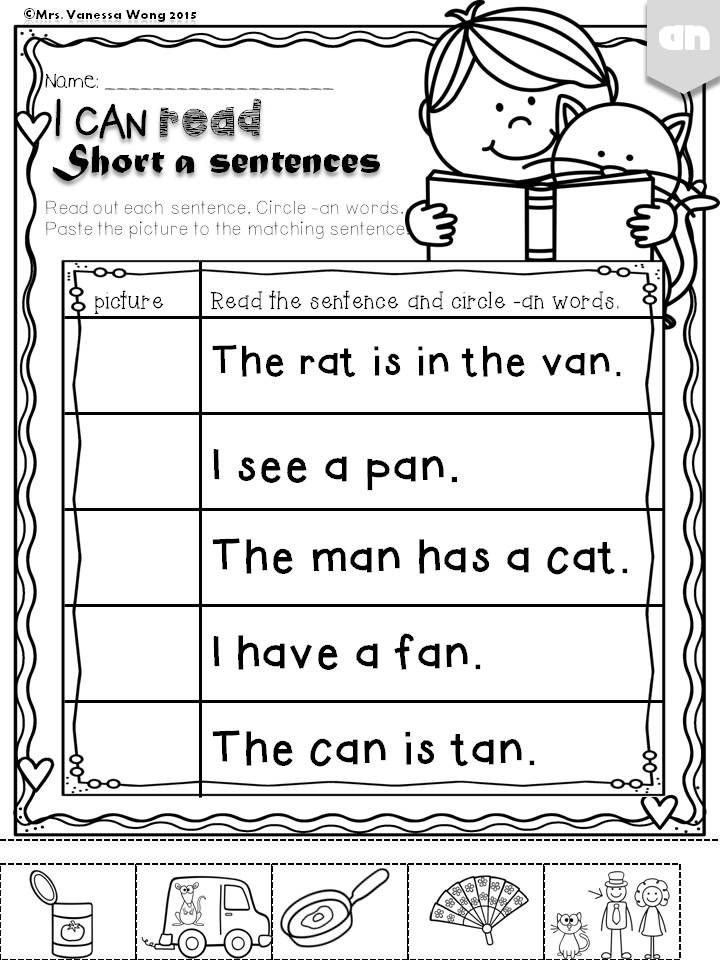
More Tips and Activities for Readers:
Short Vowel Folable Sound it Out Strips
1-2-3 Flip It for CVC Words
Enjoy teaching!
~Becky
Want MORE Free Teaching Resources?
Join thousands of other subscribers to get hands-on activities and printables delivered right to your inbox!
How To Help Kids Sound Out Words: Expert Tips And Ideas
It can take some time for kids to learn how to sound out words. Since this is a crucial part of reading fluently, you probably want to know how you can help. Are there any special exercises you can do at home to assist your child?
Of course there are! And we’ve compiled this detailed guide to help you get started.
What Does It Mean To “Sound Out Words”?
It’s hard to imagine it now, but once upon a time, none of us could read. The alphabet, lower and uppercase letters, and the spaces between words were all confusing.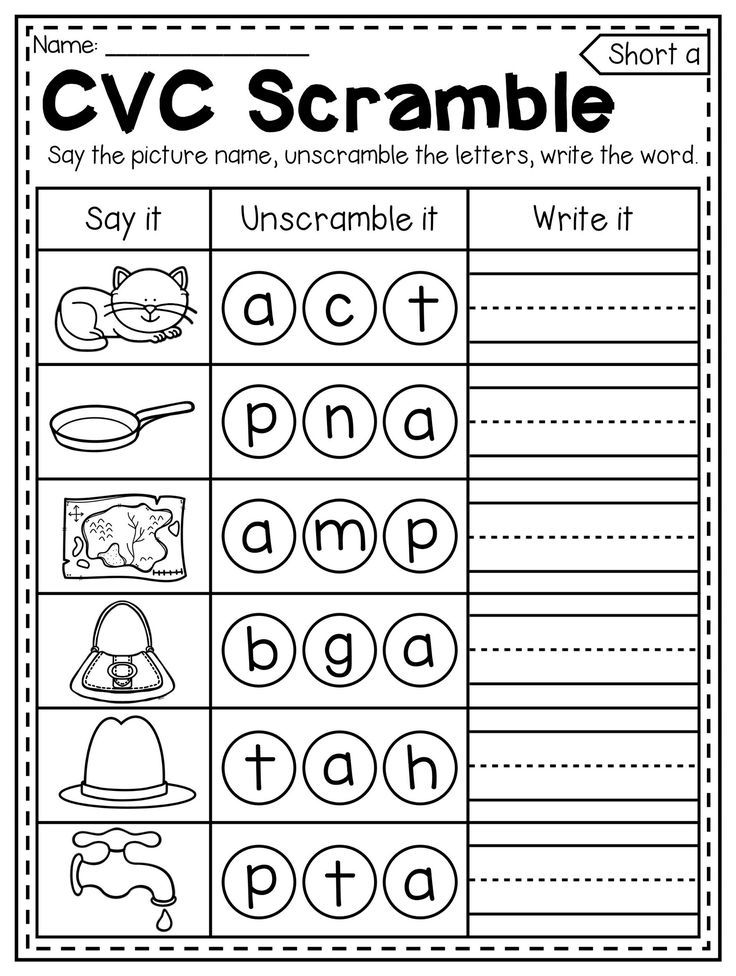 But through time and practice, here we are today.
But through time and practice, here we are today.
While many components helped us become fluent readers, learning how to sound out words was one of the game-changers.
In a nutshell, sounding out words means applying knowledge of letter-sound relationships in order to pronounce words properly.
When children learn this essential literacy skill, they will be able to say each sound in a word slowly and then quickly again. They will also understand how to blend the different sounds in a word together without much effort.
Eventually, kids internalize the process of sounding out words. To illustrate what we’re talking about, here’s a little challenge: Try to pronounce “splaf.”
You probably didn’t have to think too hard to pronounce this, even though it’s a nonsensical word. You were able to figure out the pronunciation almost immediately because the process of sounding out words has been so internalized.
At this stage of your life, sounding out happens automatically without thinking.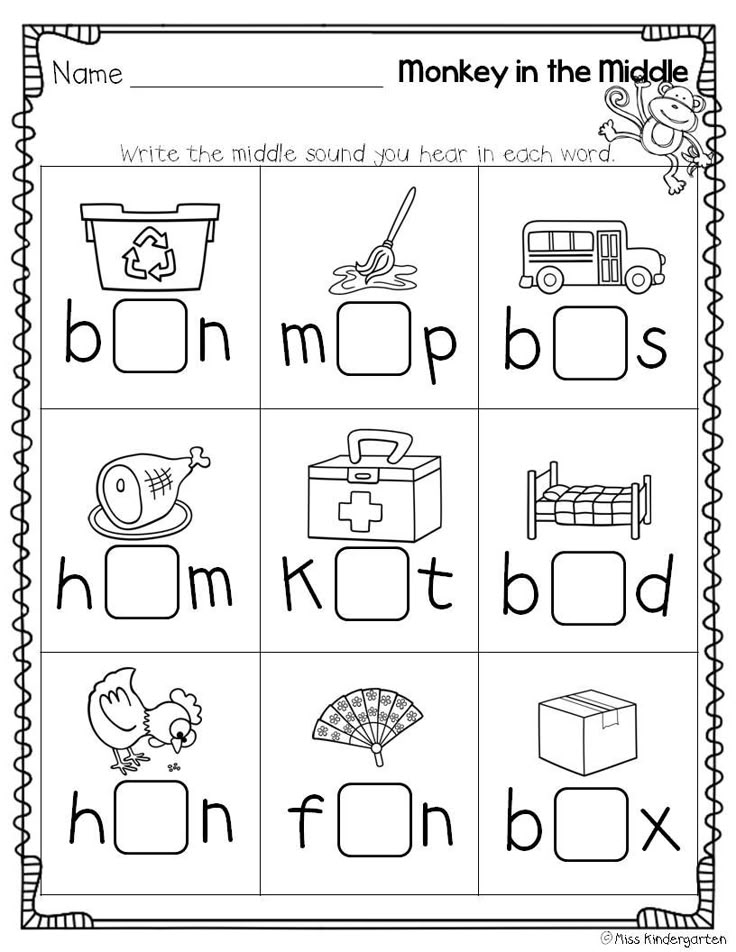 Of course, you didn’t become an expert at sounding out words overnight, and neither will your child. But with time and practice, your young learner can also get there!
Of course, you didn’t become an expert at sounding out words overnight, and neither will your child. But with time and practice, your young learner can also get there!
Why It Matters
Sounding out words helps kids learn about how to blend sounds, which can help improve their overall reading skills.
Additionally, we know that when children have strong abilities in sounding out words, they are less prone to stumble as books become harder, even when books incorporate vocabulary that they have never seen or heard before.
This can especially be seen during the “fourth-grade slump.” Throughout the first few years at school, most kids can read the material well enough to get by. But around fourth grade, children who haven’t grasped some of the basic word recognition and decoding skills may lag behind.
Helping your child learn how to sound out words early can give them the confidence they need when faced with complicated and unfamiliar text both now and later in their learning journey.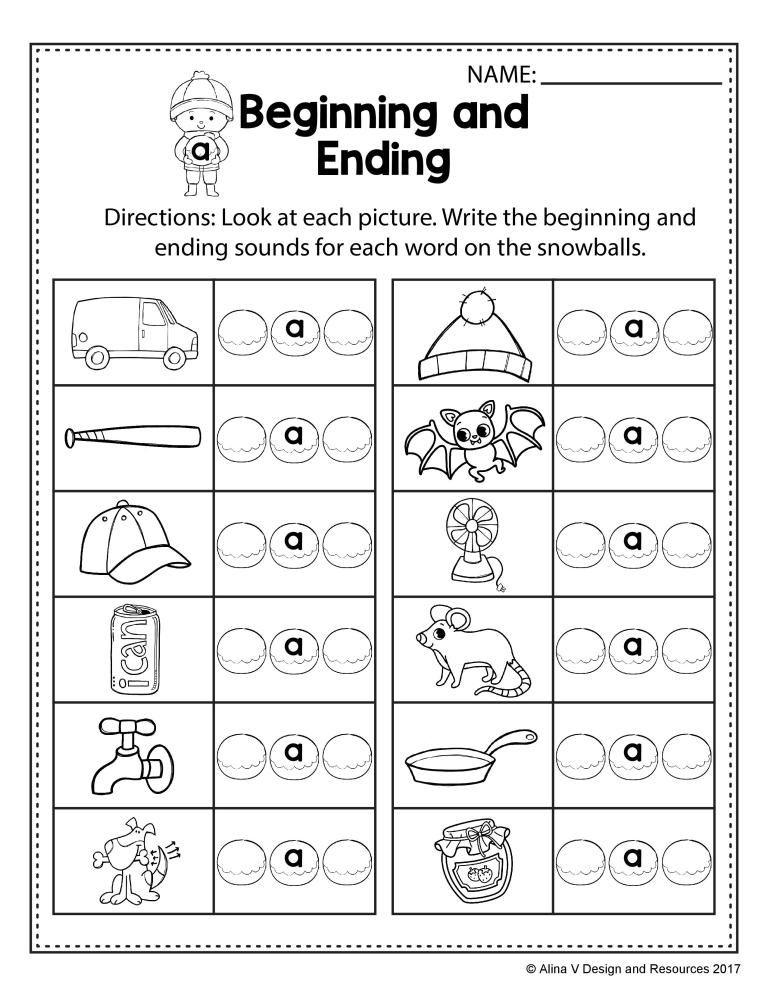
Is Your Child Ready To Sound Out Words?
If your child isn’t developmentally ready to sound out words, forcing it on them can be both frustrating and futile for you and your child.
Here are a few things to watch for to help you determine whether or not your child is ready to start sounding out words:
- Knowledge of the alphabet
- They can play with sounds in words
- Print awareness
- Phonological and phonemic awareness
- They are interested in learning to read
For more information about knowing when to start helping your child learn to read, take a look at our article Reading Readiness: Top Skills For Kids To Master.
How To Help Your Child Sound Out Words
If you feel your child is ready to learn how to sound out words, here are some ways to get started at home.
1) Help Them Identify The Phonemes
A phoneme is the smallest possible unit of sound in a language. For example, the word “cat” has three different phonemes — “c,” “a,” and “t.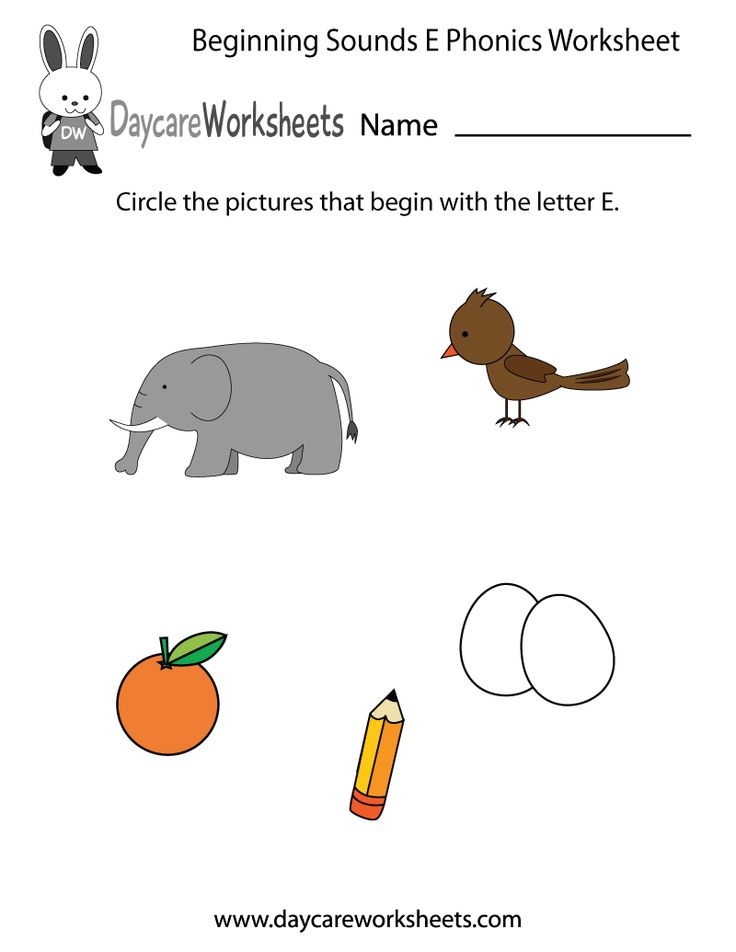 ” Phonemic awareness is the ability to identify and manipulate these sounds.
” Phonemic awareness is the ability to identify and manipulate these sounds.
Understandably, it’s challenging for a child who doesn’t understand phonemes to pronounce words correctly.
While reading together regularly gives you a great opportunity to help your child recognize and become familiar with different phonemes, you can also create activities to make things more exciting and help your young learner become more engaged with the content.
Activity Idea: From Sense To Nonsense
Choose a familiar book or nursery rhyme and ask your child to close their eyes as you read the story to them. This will help them focus on what they’re hearing.
As you read, occasionally change the words, word order, or wording. Your child will try to identify these changes, and when they manage to, ask them to explain what they think was wrong.
Here are some examples of how to make subtle changes to words to help your child with their phonemes:
- Mary had a little land
- Twinkle, twinkle, little far
- The wheels on the bus go mound and mound
- Baa baa black sleep have you any wool?
Your child will get a kick out of these little “mistakes” and have fun correcting you!
2) Read Aloud
As a parent, you probably already know the importance of early childhood reading and the great impact it can have on your child as they enter school and later in life.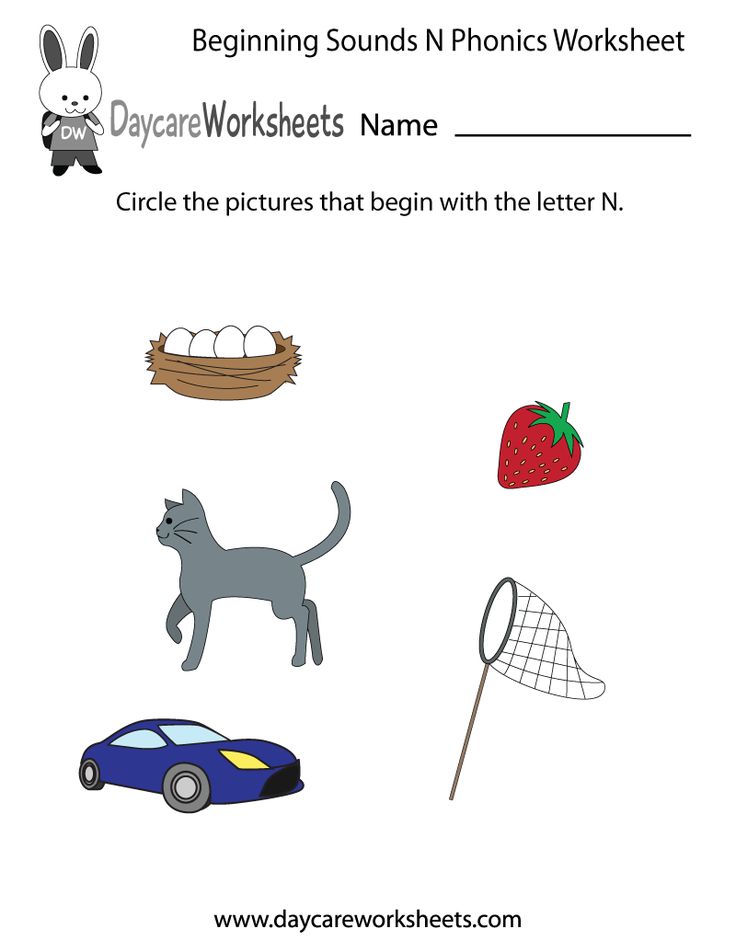 That’s why it’s essential to set aside some regular reading time with your young learner.
That’s why it’s essential to set aside some regular reading time with your young learner.
While reading, focus on reading slowly and aloud as you pan your finger on each word.
This exercise can help them associate printed letters and their combinations with the individual sounds they make. It will also help them realize that the spoken words we use can be found in print.
3) Demonstrate How To Blend Different Sounds
The ability to blend different sounds in words is essentially how we can read fluently. It helps us smoothly connect the individual sounds in a word as we read.
For example, the individual sounds in “maybe” are m/a/y/b/e. However, because of blending, you can sound out the word as /maaybee/ without even thinking about it.
Here are a couple of activities that can help your child blend different sounds.
Activity: Robot Talk
Robot talk can help a child segment the different sounds of a word. After “robot talking” a word, they can then say the word faster or more fluently.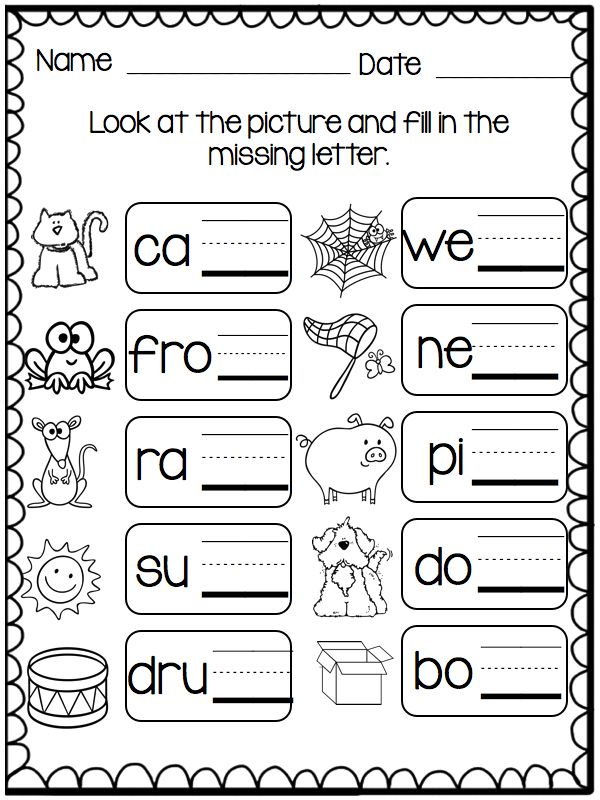
Robot talk is exactly as it sounds: speaking in shorty, choppy sentences like a robot!
Activity: Guess The Word
All you need to get started with this fun activity is some picture cards of objects or items your child is familiar with (e.g., sun, moon, stars, trees, ball, etc.)
Place the picture cards in front of your child and tell them that you’re going to say a word out slowly and they will need to identify which card matches the word you’ve just said. For example, /ssstaarrsss/.
Playing this game is another way of helping your child recognize the individual sounds in words, a key component of learning how to sound out words.
4) Encourage Reading And Writing
You don’t have to wait until your child is a perfect speller to let them start writing. Any practice they get can help boost their awareness of sounds that are in words and, in turn, improve their writing awareness.
Activity: Sound Out The Written Word
If your child is learning how to spell mat, start by stretching the word out so they can hear each sound (m/a/t).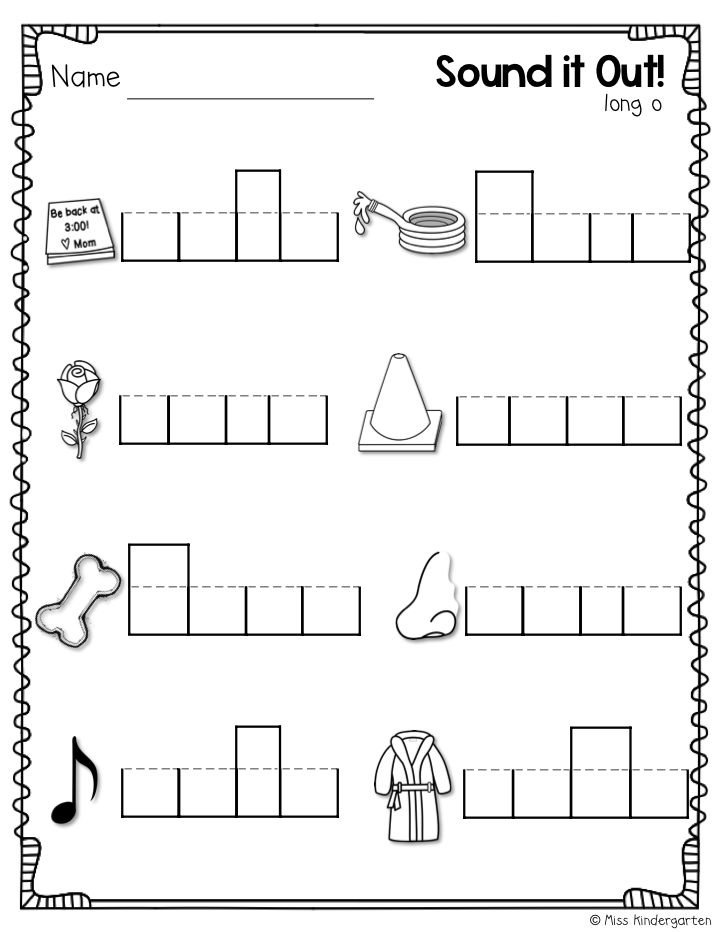 After spelling the word, have your child read the word back to you at a normal pace (blending sounds).
After spelling the word, have your child read the word back to you at a normal pace (blending sounds).
This activity can help improve not only your child’s blending skills but also their spelling. Make it a bit more fun by letting them write each letter in a different color.
5) Play “I Spy” With The Alphabet
Letters are all around us. We might overlook this fun fact, but a child who’s learning the alphabet will find joy in noticing it. Now’s a great time to play “I Spy” — with a little twist, of course!
Play I Spy (driving to school, walking to the park, etc.) to find letters in the world around them. When your child finds a letter, encourage them to say it and the sound it makes out loud.
Take It One Sound At A Time
There is no magic wand that can help your young learner sound out words overnight. But we believe that with a little practice and lots of encouragement, your child will be a word-sounding-out pro in no time!
While on this literacy journey, remember to continue reading regularly, and when they finally get it, embrace those moments (no matter how small) to help keep them motivated.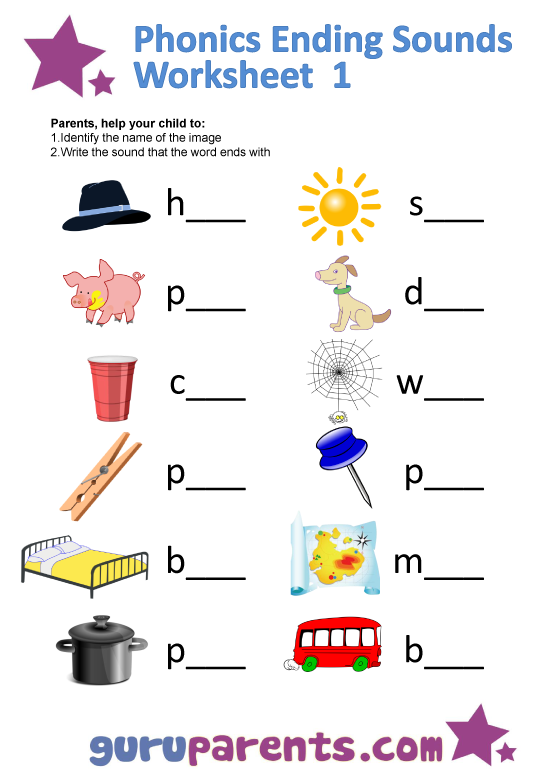
For more fun activities to try at home with your emerging reader, check out the HOMER Learn & Grow App!
Author
Methodical piggy bank
MBDOU "Kindergarten No. 294"
g.o. Samara
8 (846) 951-99-72
Samara,First Nameless Lane, 12
In order to voice the text, you need to highlight the required text fragment or the entire material (paragraph, paragraph) with the cursor, then click on the speaker icon to the right of the text. The icon () will appear immediately after selecting the text.
-
Virtual tour for children and adults "The history of the amazing monuments of our city"
-
Educational route for children and parents "Healthy lifestyle and healthy food"
-
Educational route for children and adults "Space is interesting"
-
Educational route "Wonderful things around us" for pupils and parents
-
04/23/2019 a pedagogical council was held on the topic "Formation of patriotic foundations among preschoolers in a preschool educational institution"
Teachers were introduced to the implementation of the National projects "Education", "Demography" on the territory of the Samara region and the urban district of Samara.
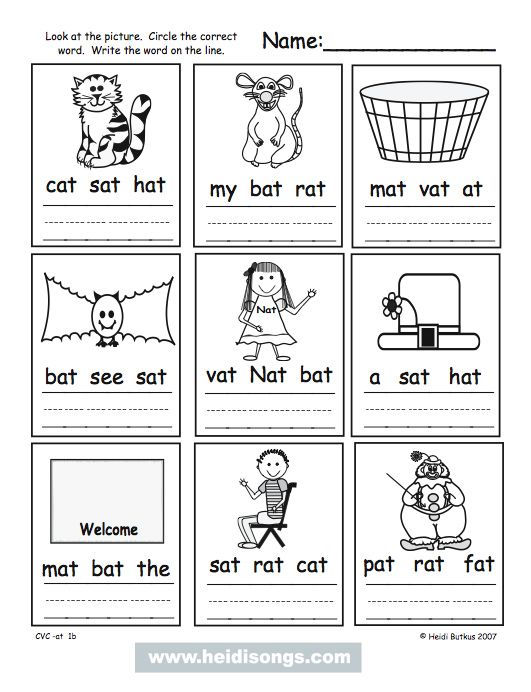
A presentation about famous compatriots was shown.
Teachers took part in the master class "Kanzashi from rep ribbons for the Victory Day." -
Consultation for educators on the topic: “Why a child should play role-playing games” was prepared by educator Rybkina E.I.
-
Consultation for parents "Museums in the life of a child" was prepared by the educator Rybkina E.I.
-
Advice for parents "Introduce your child to your hometown"
-
Consultation for educators "The important role of ecological education of the child"
-
Summary of GCD using ICT in the middle group on the topic "Where did the bread come from"
-
Summary of GCD using ICT in the senior group on the topic: "Water is a magician"
-
Synopsis of cognitive and research activities in the preparatory group "Excursion to the autumn forest"
-
Consultation for parents on the topic "A fairy tale in a child's life"
-
Consultation for educators on the topic: "Music in moral education"
-
Matinee "Hello autumn"
-
Consultation for parents on the topic: "A book in a child's life"
-
Scenario graduation party in kindergarten 2015
-
Consultation for parents on the topic: "What is musicality?"
-
Consultation for parents at the parent meeting "Music in kindergarten and what it is for"
-
Consultation for educators on the topic: "The role of the educator in the musical activities of children"
-
Summary of GCD using ICT with children of the 2nd junior group on the topic "Journey to the country of birds"
-
Summary of GCD using ESM with children of the older group on the topic "Professions"
-
Summary of GCD using ICT with children of the preparatory group on the topic "In the winter forest"
-
Summary of GCD in the senior group using ICT on the topic "Friendly guys"
-
Consultation for parents "How to tell preschoolers about the war?"
-
Consultation for parents "Child and TV"
-
Consultation for educators on the topic "Health-saving technologies in preschool educational institutions"
-
Consultation for educators "Organization of work with preschoolers according to the rules of the road"
Documents
MBDOU "Kindergarten No.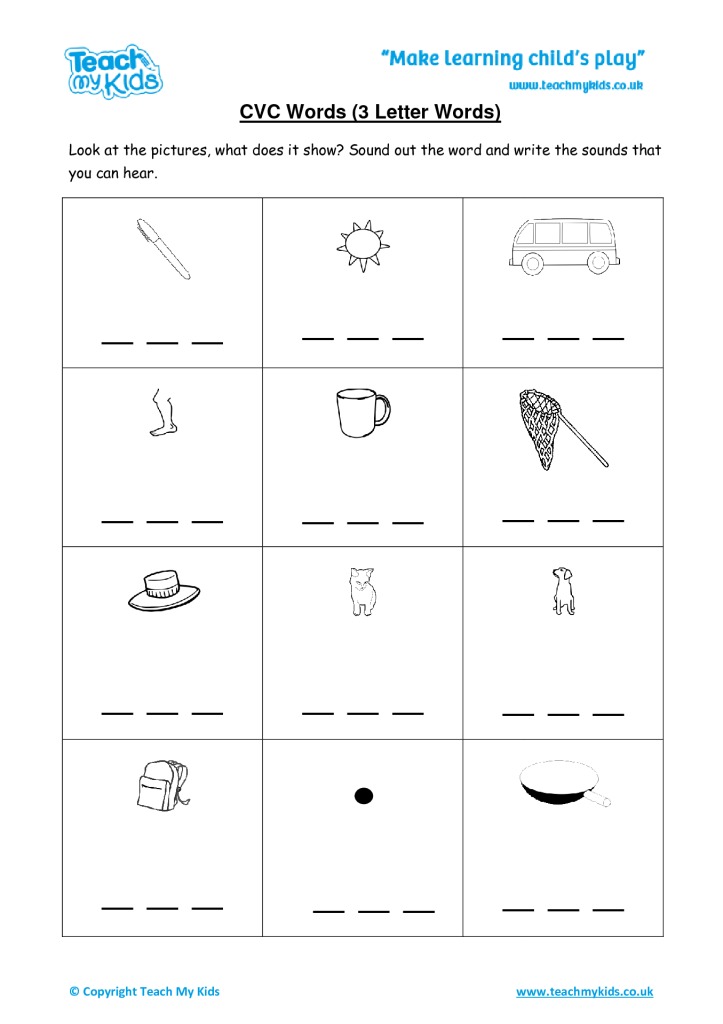 294"
294"
Samara
8 (846) 951-99-72
Samara,First Nameless Lane, 12
In order to voice the text, you need to highlight the required text fragment or the entire material (paragraph, paragraph) with the cursor, then click on the speaker icon to the right of the text. The icon () will appear immediately after selecting the text.
Historical note
Nursery-garden No. 294 has been functioning since 12/01/1964 and belonged to JSC "Soliton".
Since December 1, 1994, it was transferred to the balance of the regional educational organization and renamed Preschool Educational Institution No. 294 of the Soviet District of Samara (based on the Decree of the Administration of the Soviet District of Samara No. 283 dated March 6, 1996,
From 07/06/1998, the institution received the name Municipal Preschool Educational Institution - Kindergarten No. 294 Sovetsky district of the city of Samara (founded by the Decree of the administration of the Soviet district of Samara No. 848 of 07/06/98)
848 of 07/06/98)
Since March 13, 2009, the institution has been renamed the Municipal Preschool Educational Institution - Kindergarten No. 294 of the Samara City District (founded by Order of the Property Management Department of the Samara City District No. 662 dated March 13, 2009)
From 12/16/2011 - the institution was renamed into the municipal budgetary preschool educational institution kindergarten No. 294 Samara City District (founded by Decree of the Samara City District Administration No. 1901 dated December 16, 2011)
From 10.08.2015 - the institution was renamed into the municipal budgetary preschool educational institution "Kindergarten No. 294" of the city district of Samara (founded by Resolution of the Administration of the city district of Samara No. 859 dated 10.08.2015)
Documents DOU
- Development program of MBDOU "Kindergarten No. 294" Samara for 2020-2024
- Charter MBDOU "Kindergarten No. 294" Samara (new edition)
- Certificate of state accreditation
- License for educational activities
- Collective agreement MBDOU
- Order No.
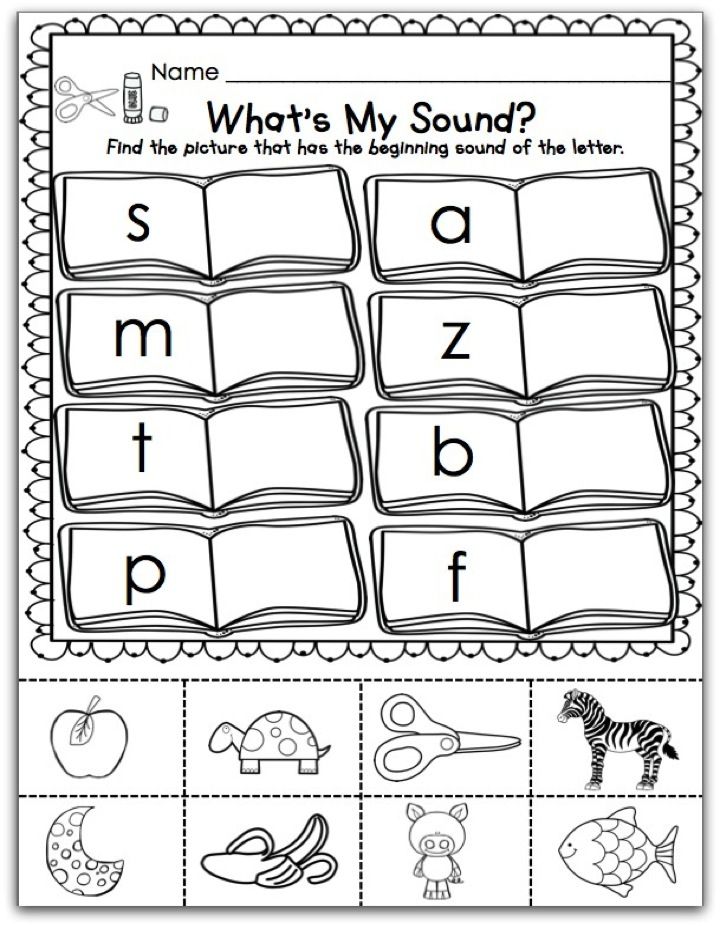 64-od dated January 27, 2016 "On Approval of Guidelines "On the procedure for attracting and using funds from individuals and (or) legal entities and measures to prevent illegal collection of funds from parents (legal representatives) of students, pupils of municipal educational institutions of the Samara city district in the field of education"
64-od dated January 27, 2016 "On Approval of Guidelines "On the procedure for attracting and using funds from individuals and (or) legal entities and measures to prevent illegal collection of funds from parents (legal representatives) of students, pupils of municipal educational institutions of the Samara city district in the field of education" - Agreement on education for educational programs of preschool education (sample)
- Application for admission to MBDOU (sample)
- Contract for the provision of paid educational services (sample)
Local regulations DOW
- Regulations on the system for assessing the individual development of pupils MBDOU No. 294
- Internal regulations for pupils of MBDOU No. 294
- Internal labor regulations MBDOU No. 294. Appendix 1 to the Collective Agreement.
- Regulations on the procedure for admitting pupils to study in the PLO DO at MBDOU No. 294
- Regulations on the mode of employment of pupils of MBDOU No.
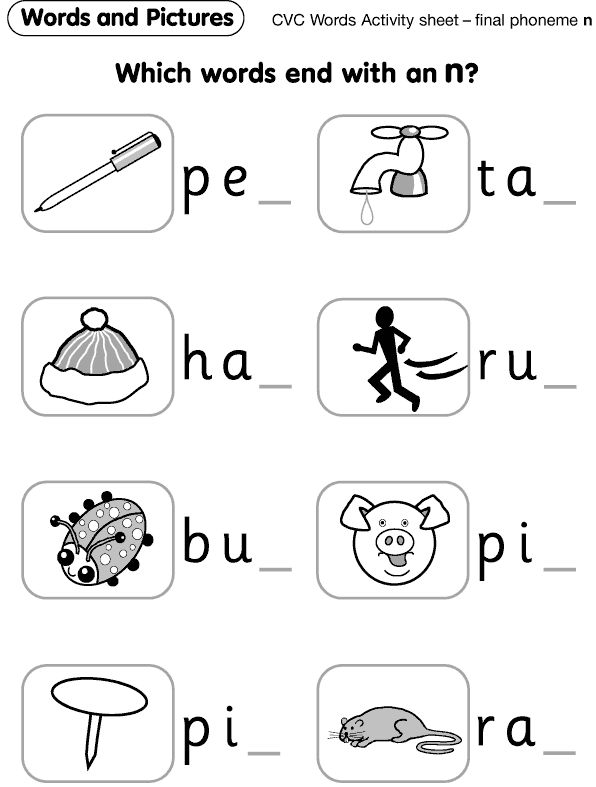 294
294 - Regulations on the procedure and grounds for the transfer and expulsion of pupils of MBDOU No. 294
- Regulations on the procedure for registration of the emergence, suspension and termination of relations between parents (legal representatives) of pupils and MBDOU No. 294
- Regulations on the Pedagogical Council of the Budgetary Institution
- Regulations on the Council of the Budget Institution
- Regulations on the General Meeting of MBDOU employees No. 294
- Regulations on the Council of parents (legal representatives) of pupils MBDOU No. 294
- Regulations on the attraction and expenditure of extrabudgetary funds MBDOU "Kindergarten No. 294"
- Regulations on the commission for the settlement of disputes between participants in educational relations MBDOU No. 294
- Regulations on the marriage commission MBDOU No. 294
- Regulations on the conflict of interests of employees MBDOU No.
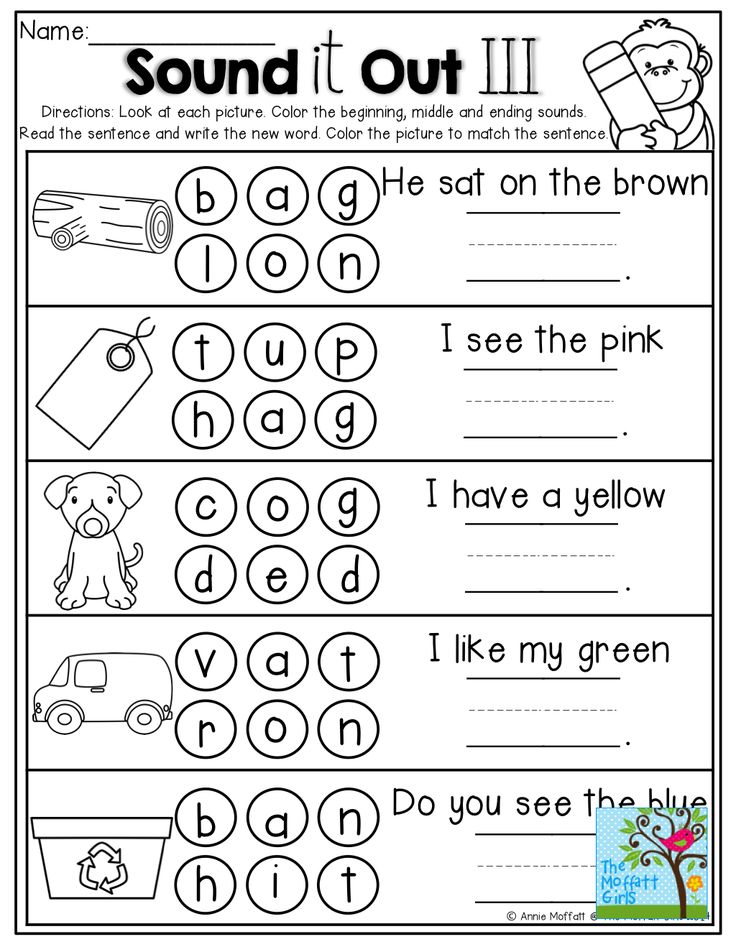 294
294 - Regulation on access and intra-object conditions in MBDOU No. 294
- Regulations on the organization of education for children with disabilities in MBDOU No. 294
- Regulation on the procedure for the provision of paid educational services MBDOU No. 294
- The procedure for investigating and recording accidents with pupils during their stay at MBDOU No. 294
- Regulations on the procedure for conducting self-examination MBDOU No. 294
- Regulation on the procedure for the formation and maintenance of personal files of employees and pupils of MBDOU No. 294
- Regulation on the language of education in MBDOU No. 294
- Regulations on the official website of MBDOU No. 294
- Regulations on the commission for the distribution of incentive payments MBDOU No. 294
Forms, frequency and procedure for monitoring progress and intermediate certification of students in MBDOU "Kindergarten No. 294" g.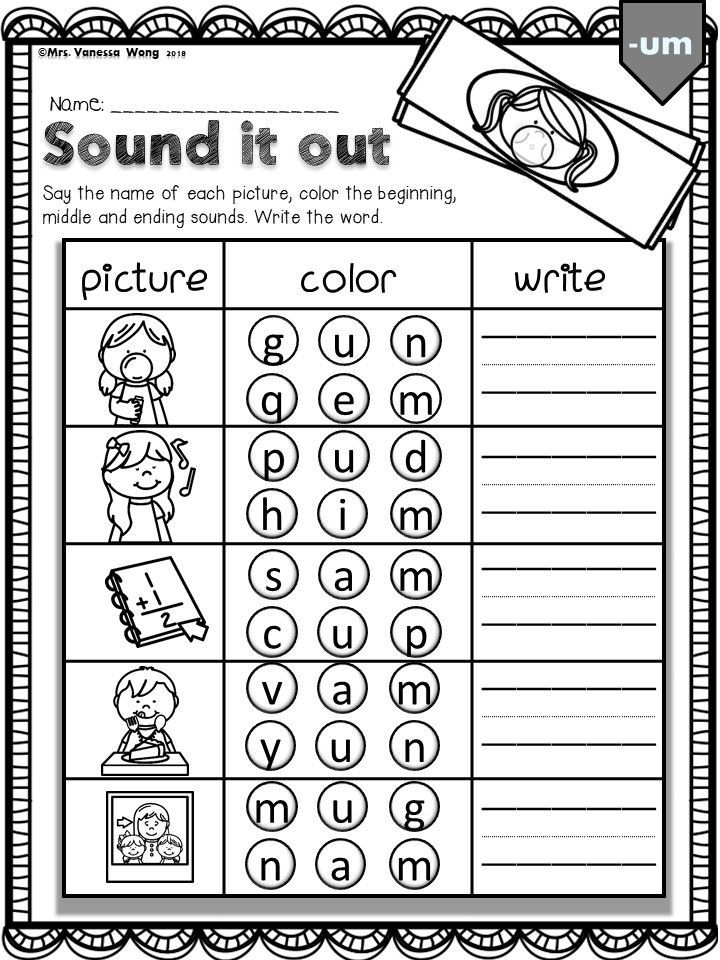 o. Samara is missing.
o. Samara is missing.
Self-examination report
- Report on the results of the self-examination of the MBDOU "Kindergarten No. 294" for 2021
- Report on the results of the self-examination of the MBDOU "Kindergarten No. 294" for 2020
Orders of the bodies exercising state control in the field of education
- Certificate on the results of the check by specialists of the Department of Economic Development, Investments and Trade of the Administration of the city of oblast. Samara dated August 25, 2022
- Order to eliminate violations of mandatory fire safety requirements No. 1251/1 dated November 29, 2021
- Inspection act of Rospotrebnadzor dated December 30, 2019
- Inspection report of the Ministry of Emergency Situations dated 12/11/2019
- Order No. 1213 dated 10/14/2019
- Inspection act of Rospotrebnadzor No. 05/1214 dated 10/14/2019
- Inspection act of Rospotrebnadzor No.
